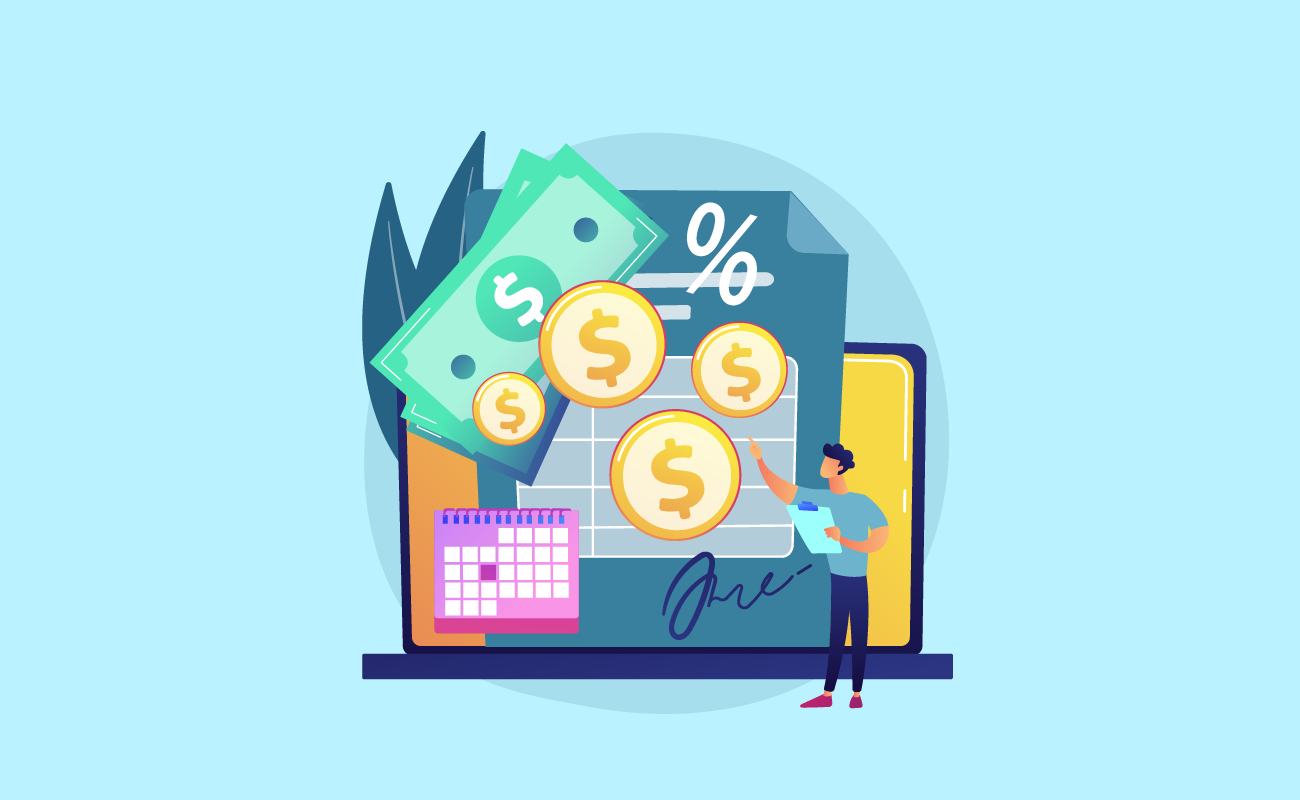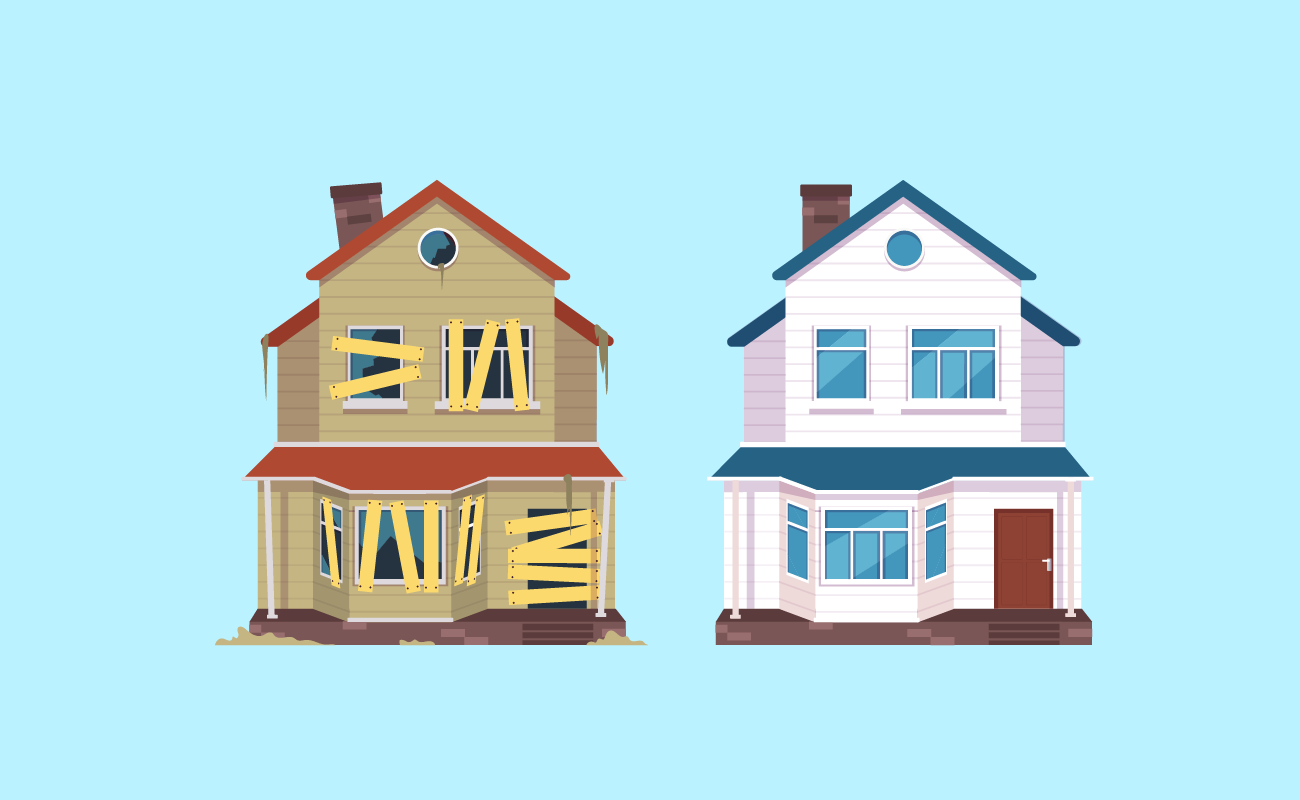
This tool figures monthly payments on a hard money loan, offering payment amounts for P&I, Interest-Only and Balloon repayments — along with providing a monthly amortization schedule. This calculator automatically figures the balloon payment based on the entered loan amortization period. If you make interest-only payments then your monthly payments will be the interest-only payment amount below with the balloon payment being the original amount borrowed.
| Hard Money & Commercial Mortgage Loan Providers | Rates |
|---|---|
| Hard Money Loans | 10% - 18% |
| Freddie Mac Optigo | 6.39% – 8.01% |
| Fannie Mae | 6.49% – 7.81% |
| HUD 223(f) | 6.25% – 7.30% |
| CMBS | 6.46% – 7.95% |
| Regional Banks/Credit Unions | 6.95% – 10.50% |
| Life Insurance Companies | 6.21% – 7.11% |
| Debt Funds | 9.07% – 15.32% |
| HUD 221(d)(4) | 6.85% – 7.90% |
Note: The range of commercial mortgage rates should be considered typical. However, there are outliers on the high and low end of the range. Thus, these figures do not guarantee actual rates on a specific commercial mortgage deal. To see which options you qualify for & get the best deal you can we recommend contacting a commercial mortgage broker who can help you see what you qualify for.

Small and large companies take advantage of commercial financing. This enables business owners to improve operations while acquiring their own commercial property. And once you own your business property, you can lower your expenses by avoiding rental costs.
While banks and credit unions offer commercial loans, not everyone can access them. Traditional commercial mortgages impose stringent underwriting procedures that take a long time to get approved (3 months or more). They require high credit scores and proof that your company has enough cash flow to repay the mortgage. For these reasons, borrowers with low credit scores or history of default do not get approved.
If you can’t secure a traditional commercial loan, you can turn to hard money lenders. These are private investors who offer financing based on the property you are using as collateral. But how do they work?
In this article, we’ll talk about hard money loan requirements, its payment structure, and rates. Our guide will also discuss when it makes sense to obtain a hard money loan along with its pros and cons.

What are Hard Money Loans?
A hard money loan is a type of commercial mortgage provided by an independent investor, such as a company or individual. It is usually taken for a short term of 12 months to 3 years. But unlike commercial loans from banks, hard money loans are based on property being used as collateral rather than the borrower’s creditworthiness.
Borrowers who worry about their credit score and the long approval process may take hard money loans. This is often considered the last resort if you are unqualified for traditional commercial financing. Financial experts say hard refers to the nature of the loan, which is difficult to finance by traditional standards. However, others say it refers to the collateral of the loan being a hard asset, which is the real estate property securing the loan. Either way, these origin stories lend credence to the aptness of the loan’s name.
Business owners take advantage of hard money loans to access quick capital. It’s often used to aid business transitions, such as renovating commercial property or moving your company to a new location.
Borrowers also use hard money loans to bridge the gap between an investment property purchase and long-term financing. During the short term, they use hard money financing to acquire and renovate the property. Later on, they refinance the loan with a traditional commercial mortgage to pay off the hard money lender.
However, because it does not adhere to traditional processing, hard money loans shorten your funding frame a great deal. This makes it a risky option, most especially to borrowers with limited cash flow and funding sources for repayment.

Hard Money Loans and Bridge Loans
Technically, there’s not much difference between hard money loans and bridge loans. They are both provided by independent investors such as companies and individuals. Both loans are also structured with short terms. Lenders also expect monthly interest-only payments and a balloon payment at the end of the loan.
But when it comes to interest rates, bridge loans are slightly lower. The range is usually between 6% and 10% for bridge loans, while hard money loans range from 10% to 18%. This means bridge loan payments can be lower compared to hard money loans.

Taking a hard money loan has similarities with traditional commercial mortgages. Lenders process your application and determine your repayment terms. But unlike commercial mortgages from banks, hard money lenders are not as strict with your credit background. Moreover, they do not use the standard underwriting process in evaluating loans.

Who’s Qualified for a Hard Money Loan?
To obtain a hard money loan, you must have sufficient equity on property. Applicants with low credit scores may qualify. You can secure it even if you have a history of foreclosure. The property is signed as collateral, which is the only protection a lender relies on in case you default on your loan.
Hard money lenders primarily determine loan approval and terms based on the property used as collateral. They do not weigh decisions heavily on your creditworthiness. A lender may sometimes perform credit checks or evaluate your credit score. However, the value of the collateral supersedes your actual financial disposition. Thus, financing is fast and do not take as long as banks or credit unions.
You can secure a hard money loan even if your personal credit score is below 680. This is the usual requirement by traditional commercial lenders. As for down payment, 20 percent to 30 percent of the loan amount is required. However, some hard money providers may require 10 percent down payment if you are an experienced house flipper.

Expect a Lower Loan-to-Value Ratio
Most hard money lenders follow a lower loan-to-value (LTV) ratio, which is 60 percent to 80 percent. Meanwhile, commercial mortgages from banks usually keep an LTV ratio of 80 percent. The lower LTV means hard money lenders do not provide as much financing as traditional commercial sources. If you default on your loan, a lender can count on selling your property quickly. They may also have higher chances of recouping the lost funds.
On the other hand, prepare for several drawbacks. The cost of hard money loans is generally higher compared to traditional commercial financing. Hard money loans have a rate of 10 percent to 18 percent. Meanwhile, traditional commercial loans typically have rates between 1.176 percent to 12 percent. In this respect, hard money loan rates can be greater than subprime commercial loans. The increased cost is indicative of the high risk lenders face when they offer this type of financing.
Business owners who take hard money loans justify this cost. They consider it a trade-off for the less taxing approval process. It’s the price borrowers pay for gaining faster access to commercial capital. And unlike banks, hard money loans may allow business owners to negotiate flexible repayment arrangements with their lender.

Hard money loans come with similar payment structure as traditional commercial loans, albeit with a much shorter term. They usually come in 12 month terms up to 3 years, with an interest-only payment structure. This means you only need to pay interest costs every month for the entire term. Once the payment term is done, you must make a balloon payment to pay off the remaining balance.
To give you an example, let’s say you obtained a hard money loan at $800,000 with 12 percent APR. You agreed to a term of 2 years, after which you must make the balloon payment to pay off the remaining balance. For this balloon payment, the amortization schedule is based on a 30-year term.
Using the calculator above our page, let’s estimate your monthly interest-only payment, principal and interest payment, and total balloon payment.
Hard money loan amount: $800,000
Interest rate: 12% APR
Term: 2 years
| Payment Type | Amount |
|---|---|
| Interest-only payment | $8,000.00 |
| Principal and Interest payment | $8,228.90 |
| Balloon payment | $793,825.75 |
Based on the table above, your monthly interest-only payment will be $8,000.00. If you opt to make principal payments with interest, it will cost $8,228.90 per month. By the end of the 2-year term, you must make a balloon payment of $793,825.75 to pay down your mortgage.

Hard money loans have become a common financing option for house flippers who cannot access commercial loans from banks. This may be due to a low credit rating and a history of substantial debt. In other instances, a real estate deal may not pass strict guidelines from a traditional lender. For these reasons, house flippers turn to hard money loans.
House flippers are real estate investors who buy property to fix and sell for a higher profit. They need enough cash to fully fund a deal. Otherwise, their offer to purchase property won’t be competitive. Once they purchase a house, they renovate it until it is ready for sale. This usually takes a couple of months to a year, making it ideal for short-term financing.
Once they are able to make a sale, they can pay back the loan. On the other hand, if a house flipper defaults, the hard money lender can foreclose or take ownership of the property. They can also sell it profitably in the market. However the deal turns out, it can still be a profitable outcome for the lender.

Borrowers who have a hard time securing a traditional commercial loan may take hard money financing. But before you sign any deal, you should weigh in the benefits and drawbacks of taking this type of loan.
First, let’s rundown its advantages. Many borrowers are drawn by the quick approval and financing time. If you need fast capital within a limited period, this is a viable recourse. A commercial loan from a bank can take over 3 months to get approved. Meanwhile a hard money loan can get approved and funded in 7 to 14 days.
Hard money lenders also allow you to leverage other people’s funds. This means you can potentially fund more than one real estate deal at once. Meanwhile, banks will not allow you to do this. If you’re confident about funding multiple commercial loans, you should consider hard money financing.
Next, it can give you the flexibility you need when it comes to payments. Lenders may allow you to change your payment schedule even within a short term. This is something borrowers cannot do with banks or credit unions. In other cases, when it comes to experienced house flippers, lenders allow the interest to accrue. A house flipper can pay the interest along with the remaining balance until the term is through.
Hard money lenders may also not be as critical with repayment. This is the case if your lender finds a good opportunity to make profits from your property. They may gain more income by selling the property on their own.
Despite fast financing, consider its disadvantages. Higher interest rates is a major drawback for hard money loans. This can be 4 to 10 percentage points higher than traditional commercial mortgages. The high interest rate also translates to higher monthly payments. Overall, it costs more than traditional commercial loans.
The short term also gives you less time to generate income. You are pressured to come up with a large sum of money to cover the balloon payment at the end of the loan. If you cannot pay the remaining balance on time, you should refinance to a traditional commercial mortgage to restructure your payments. Refinancing will extend your payment term and help lower your current interest rate.

Prepare for Higher Origination Fees
Hard money loans can charge an origination fee between 1% to 3%. This can be higher compared to traditional commercial mortgages which usually charge 1 percent on origination fees. For example, if you’re origination fee is 3 percent and your loan is $850,000, your origination fee would cost $25,500. However, if your origination fee is 1 percent, it will only be $8,500.
Furthermore, some lenders might not grant financing because of strict real estate compliance laws. This depends on the jurisdiction of your owner-occupied commercial property. Compliance-related violations can result in adjudication, increased fines, or even Criminal Summonses. If there are many complicated rules, they may turn down your application.
Finally, the biggest risk is losing your property. If you default on your loan or fail to refinance early, hard money lenders can take your property and sell it on their own.
Before taking this deal, make sure you have enough funds to cover your bases. And if you cannot make the balloon payment on time, look for refinancing months before the end of the loan.
The following table summarizes the pros and cons of obtaining a hard money loan:
| Pros | Cons |
|---|---|
| Borrowers can qualify with a low credit score below 680. | Higher interest rates, can be higher than subprime loan rates from banks. |
| Quick processing and approval, provides business owners fast access to capital. | It costs more compared to a traditional commercial mortgage. |
| Offers short terms (1 year to 3 years) ideal for businesses undergoing transition. | The lender will seize your property if you default on your loan. |
| You can negotiate payments adjustments with hard money lenders, which is not possible with strict banks. | Has lower loan-to-value (LTV) ratio compared to traditional commercial loans. |
| Hard money loans can be used by flippers to buy and sell houses for a higher profit. | Additional fees are common, such as 1% to 3% origination fees. |
| Lenders may not be as strict about repayment as banks. They may still make a good profit even if you default on your loan. | Some lenders might refuse financing for owner-occupied property because of strict real estate compliance rules. |

To tap hard money loan providers, you can get in touch with real estate agents and real estate investor groups. Ask about hard money financing and they can refer the right contact person.
You can also search online for hard money lenders. If you’re interested in house flipping, there are lenders online that specifically provide fix and flip financing to borrowers.
Once you’ve reached out to a lender, be sure to discuss your situation and needs. Developing a good relationship with your financer can help you secure enough funds and negotiate better terms. Once you establish that trust, you can turn to them for a new loan in the future.
Hard money financing is an option for business owners who have difficulty qualifying for traditional commercial loans. It comes in short terms of 1 year to 3 years. This is ideal for companies who need to renovate their premises or transition to a new property. Hard money loans are approved much faster compared to commercial mortgages from banks and credit unions.
Borrowers with low credit scores can obtain hard money financing. As long as you have enough equity on your property, you can sign it as collateral for the loan. Hard money loans are considered the “last resort” by most conservative borrowers. And as a trade-off, it imposes a higher interest rate of 10 percent to 18 percent compared to traditional commercial loans.
Borrowers are expected to make interest-only payments during the short term, after which a balloon payment is due. If you cannot pay back in time, you should refinance the loan into a traditional commercial mortgage to extend the term. Otherwise, you’ll lose the property if you default on your loan. So make sure to cover your bases before you take this financing option.